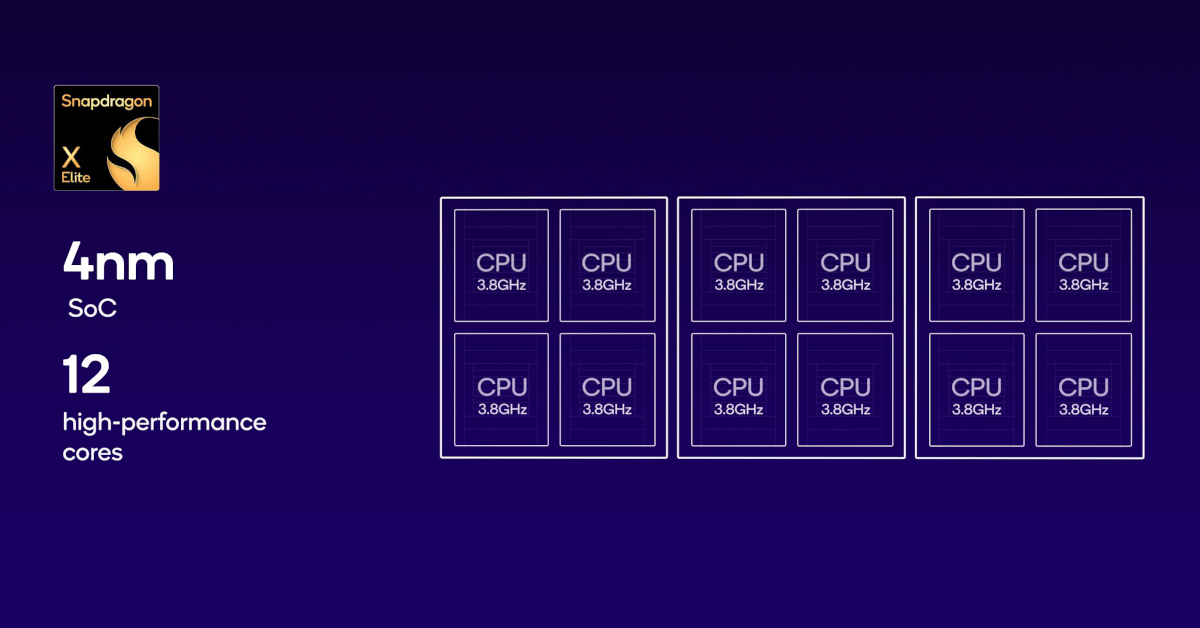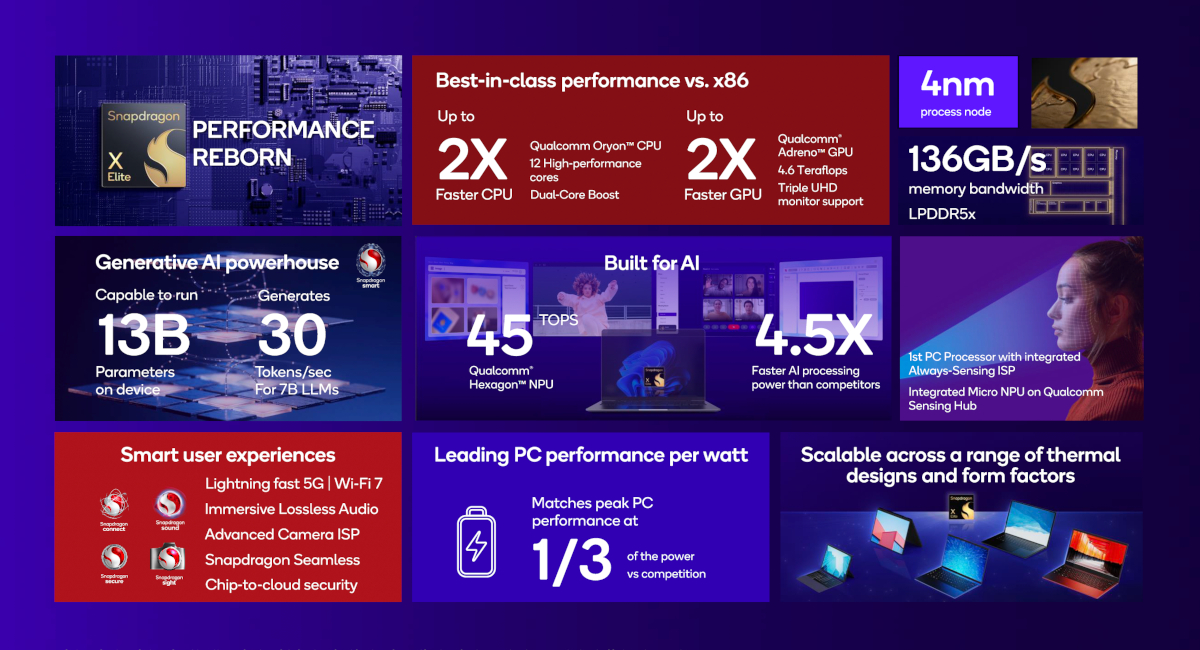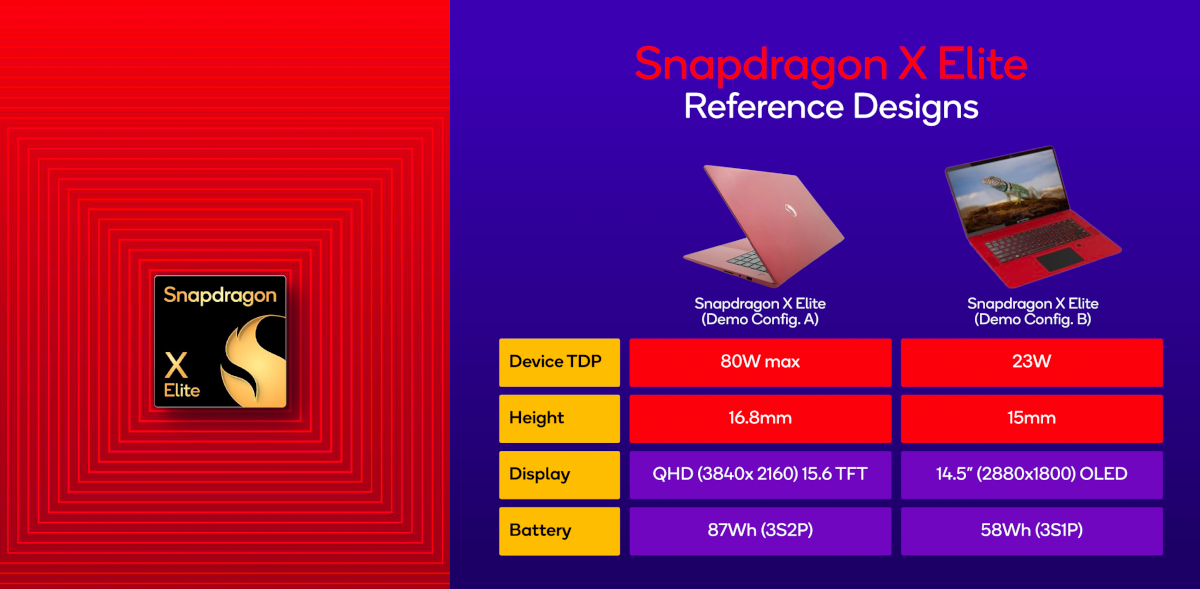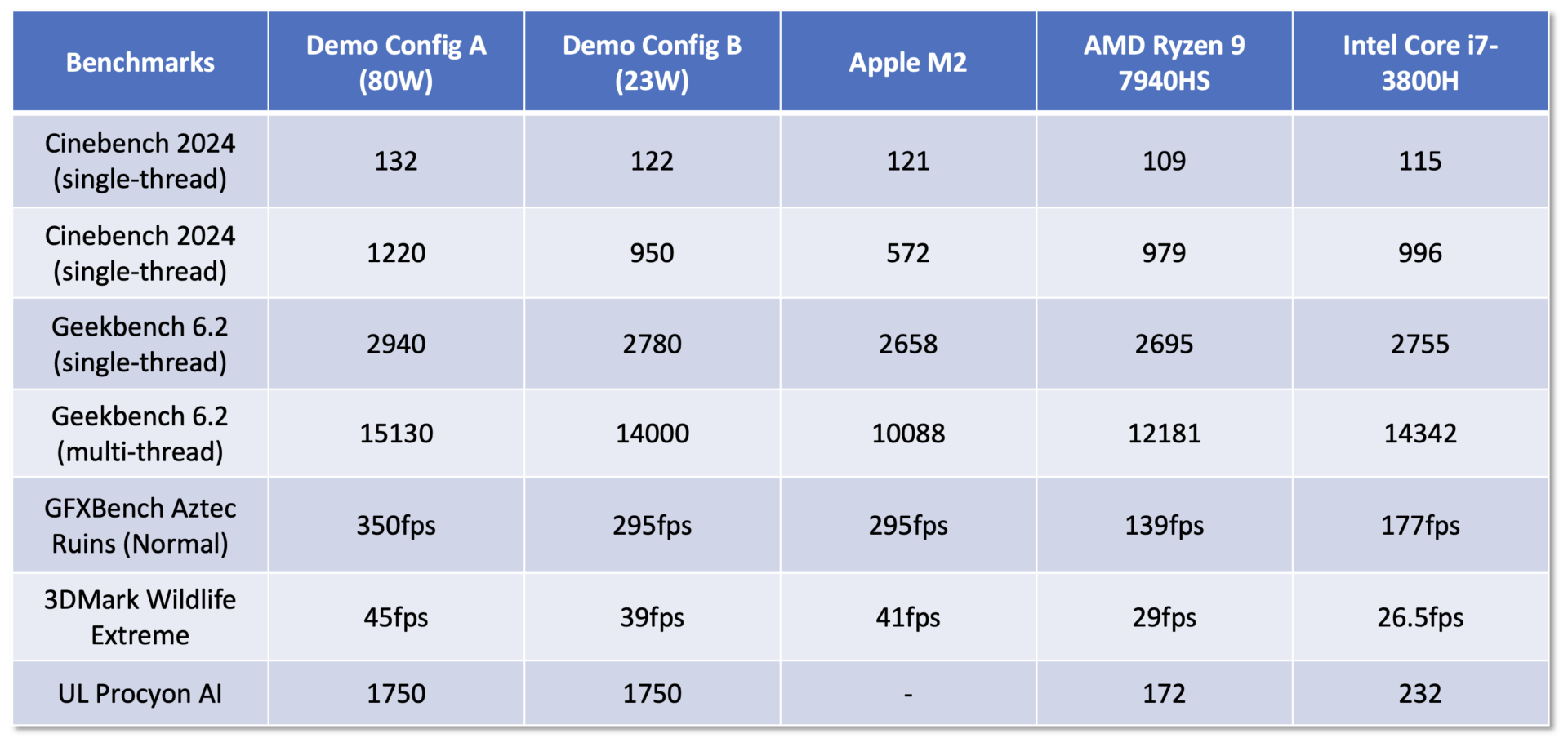- Qualcomm’s new Snapdragon X Elite SoC targets the AI PC market as the PC market bottoms out.
- Made on TSMC’s 4nm process node, the new Snapdragon X Elite features a powerful 12-core Oryon CPU.
- Between the Oryon CPU, Adreno GPU, and the Hexagon NPU, the Snapdragon X Elite can deliver up to 75 TOPS of AI computing performance.
Qualcomm announced its latest Snapdragon X Elite compute platform at the 2023 Snapdragon Summit held in Hawaii on October 24-26, during which the company also launched the Snapdragon 8 Gen 3 mobile platform. The Snapdragon X Elite is an ARM-based processor designed for personal computers and aims at delivering powerful performance and better power efficiency along with cutting-edge on-device generative AI features.
Qualcomm looking to expand its ARM SoC Smartphone Success to the PC Platform
Based on its brand-new ARM CPU core ‘Oryon’, developed from its Nuvia acquisition, Qualcomm’s Snapdragon X Elite SoC is built on TSMC’s 4nm process node. The CPU uses ARM’s 8.7 instruction set and features 12 high-performance ‘Oryon’ cores clocked at 3.8GHz. There is also a dual-core boost feature offering peak clock speeds of up to 4.3GHz. Qualcomm says the Snapdragon X Elite can offer 2x faster CPU performance than the competition while consuming one-third of the power.

Combined with 136GB/s LPDDR5x memory bandwidth, and up to a total of 42MB cache, including three 12MB L2 cache, and the remaining 6MB shared with the overall CPU. The SoC comes with an integrated Adreno GPU as well as Hexagon NPU and sensing hub to enable multiple AI functions. This is effectively moving AI inferencing to the network edge (laptop). The Adreno GPU supports DirectX, OpenCL, and Vulcan APIs.
Built for on-device AI experiences, the Hexagon NPU can deliver peak AI computing performance of 45 TOPS, which Qualcomm claims is 4.5 times faster than the competition. And between the CPU, GPU, and NPU, the SoC can offer peak AI computing performance of 75 TOPS.
The SoC was designed to run large language models on-device, with up to 13 billion parameters, thus offering the claimed fastest Stable Diffusion performance by a laptop chip on the market. It can generate 30 tokens per second for seven billion large language models (LLMs).

The SoC is designed in a way that it can be used on laptops, tablets, and even desktop PCs. Qualcomm showcased a 12W fanless reference design, along with 23W, 45W, and even the one with 80W thermal design power (TDP). TDP measures the maximum amount of heat produced by the chip in terms of watts.
PC vendors including Lenovo, HP, Dell, Microsoft, and Acer are all working to bring Snapdragon X Elite-powered laptops to the market by mid-2024.
WATCH: “AI PC” Era Beckons with Snapdragon X Elite: Deep Dive with Qualcomm’s Kedar Kondap
Snapdragon X Elite Benchmarks Show Impressive Gains over Apple Silicon, Intel and AMD Processors
At the Snapdragon Summit, we also had an opportunity to take a sneak peek at the Snapdragon X Elite benchmarking, where Qualcomm tested the SoC on both Windows and Linux (using Geekbench 6.2). Cinebench, UL Procyon AI, Wildlife Extreme, Aztec Ruins, and PC Mark were some of the other popular benchmarks on which the Snapdragon X Elite was tested.

The reference design laptops were loaded with some popular benchmarks to show how they performed over the competition. There were two TDP configurations — Config A laptop with 80W max and Config B laptop with 23W.
Below are some of the scores that Qualcomm shared:

ARM-based Laptops to Further Gain Share at x86’s Expense
Qualcomm’s Snapdragon X Elite SoC was built completely on an ARM IP structure, instead of the long-lasting x86 IP structure in the PC industry, which supports our view of the double-digit YoY percentage growth in ARM-based laptop shipments.

After Microsoft and Qualcomm’s exclusive agreement to develop ARM-based Windows-compatible chips expires in 2024, we are expecting more chip vendors to enter the market and that will make the PC market more competitive. Intel could face more challenges to its long-lasting dominance in the PC CPU market.
We believe there are still challenges for the ARM-based PC ecosystem and apps/software support. Software developers have spent decades and billions of dollars writing code for Windows that runs on the x86 architecture. Even if Microsoft smoothly migrates its Windows software portfolio to ARM-based processors, it could take a lot of time for the ARM-based ecosystem to see similar migrations and maturity.
AI PC to Drive Another Wave of Shipment Growth in 2024
In 2023, PC OEMs and chip vendors are all dedicated to developing products/solutions for the AI universe. Over the past five quarters, PC OEMs have been working hard to resolve inventory issues and had a hard time searching for a new growth engine for the PC business. Now, the AI PC market is witnessing a surge, underpinned by Intel and Qualcomm’s new PC CPU platform, which is just around the corner. These AI-enabled PC models will likely be available around mid-2024.
We now expect AI PCs to have an over 50% 10-year CAGR from 2020, and after 2026, they will dominate the PC market. Intel, Qualcomm, and other PC CPU makers are working closely with PC OEMs toward the next-generation mainstream models, marking a new chapter for the PC industry.

